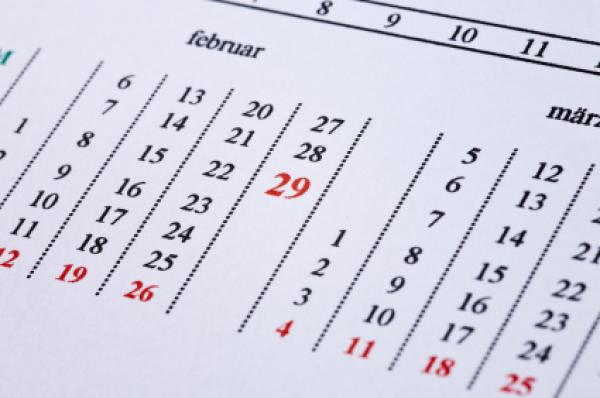The Faith
For centuries, well before humans had a written language, villagers would track the movement of the moon and the stars to keep time. They would plant crops and prepare themselves for the weather of the seasons by the Lunar calendar. But as we know today, that calendar is imperfect. The Lunar calendar has 354 days, and would be adjusted into other calendars over the years so that the seasons would happen at the same time in the calendar. The most accurate calendar from antiquity would be the Julian Calendar, named for Julius Caesar, who instituted it in 45 BC. When the Christian faith became legal in the Roman Empire, the Council of Nicaea in 325 AD calculated holy days based on the Julian Calendar. Over the centuries, however, the calendar went out of date from the actual Solar calendar, which is based on the revolving of the Earth around the sun. Eventually, this would cause problems with the seasons occurring earlier and earlier every year (by fractions of a day, but it would happen). Pope Gregory XIII decided to change the Catholic calendar to more adequately represent the Solar year in 1582. As such, the date gave a sudden skip, changing from October 4, 1582, a Thursday, to October 15, 1582, a Friday. The Gregorian Calendar, as it is known today, still keeps time for most of the Western world and the U.S. This change was done primarily to keep the Holy Days where they were supposed to be, according to research and the Jewish calendar.
The Weird
The assigning of dates is sorta arbitrary in this day and age. In the early civilizations, the calendar helped to track seasons and resulted in successful harvests, festivals, and generally keep order. Outside of the religious implications in our Gregorian Calendar, the dates don't necessarily matter because we know other methods to determine harvest time, planting time, etc. It really just exists as an easy way to plan for the future and record the past. January 1st becomes a date of significance, even though it doesn't hold any other power outside of being the arbitrary placement of the new year. For instance, the Byzantine calendar starts on September 1. The Fiscal year starts at various times depending on the company and the country. The day itself does not hold any significance outside of what we assign to it.
If you believe/celebrate the new Year on January 1st, then you assign it importance and meaning. That's why people associate it with new beginning, new life, new decisions. I bet someone who reads this will know of someone who was proposed to on New Years Day. My point is that you can start something wonderful on any day. It doesn't have to be January 1st. It can be the start of the school year, your birthday, today! Why wait to do something for the betterment of your own life?
Have a Happy New Year! ~ Buzz
